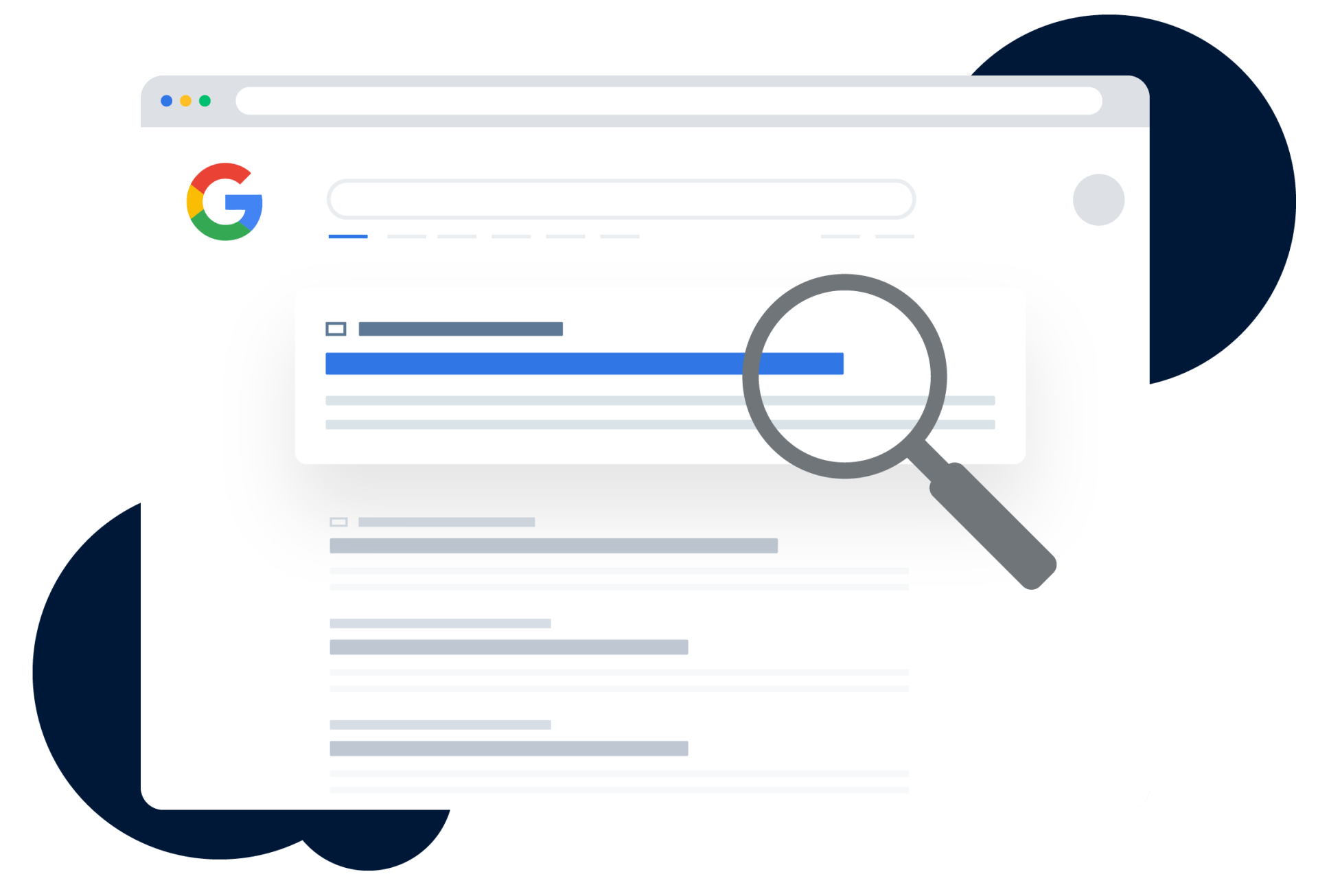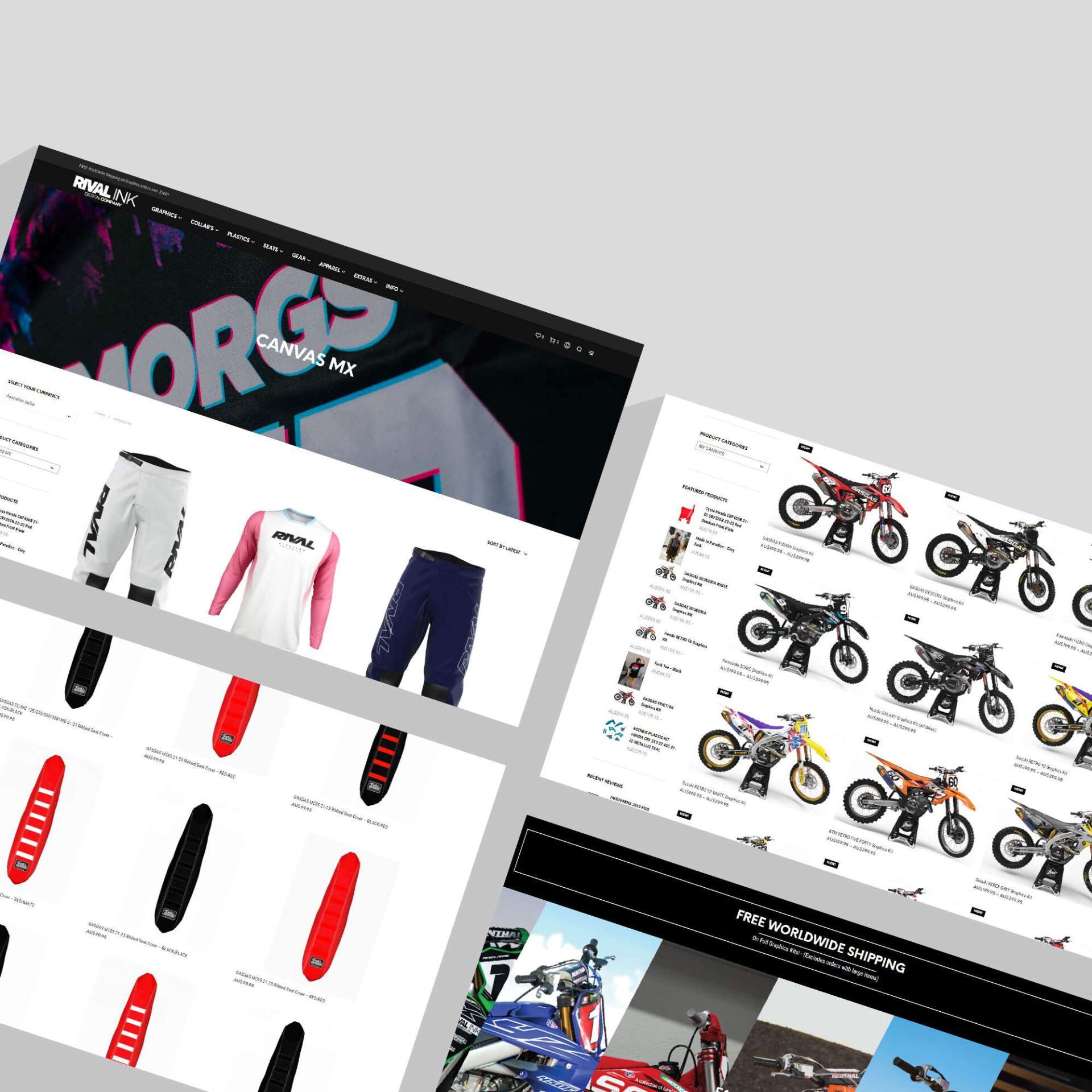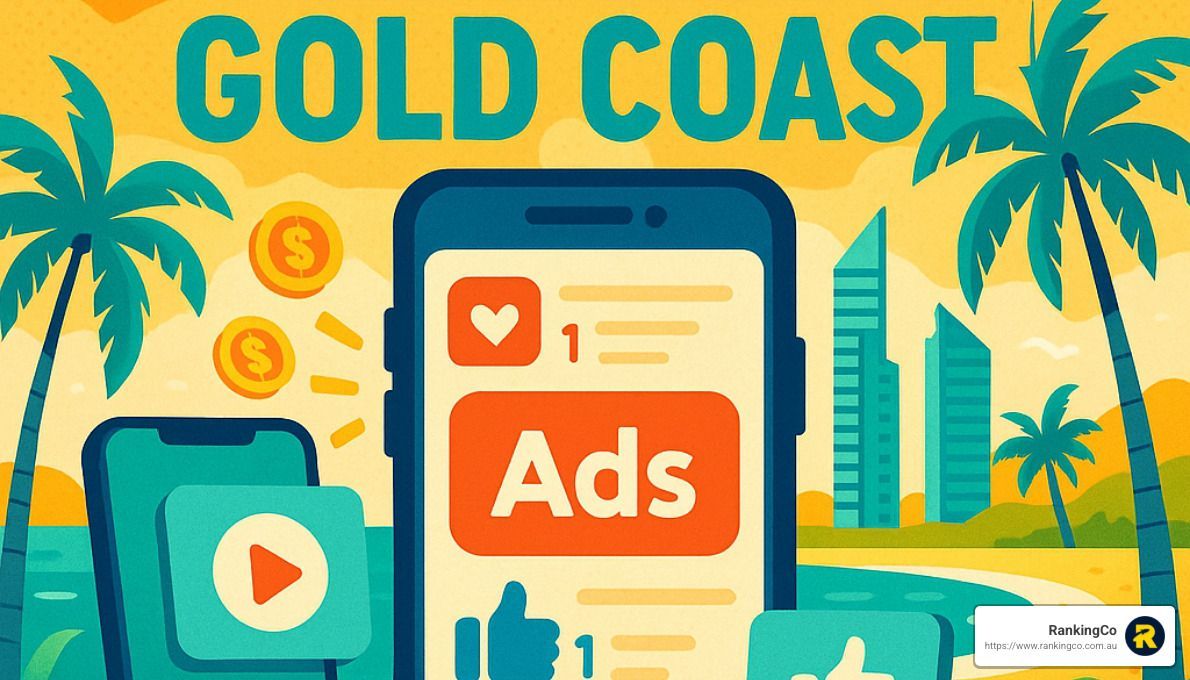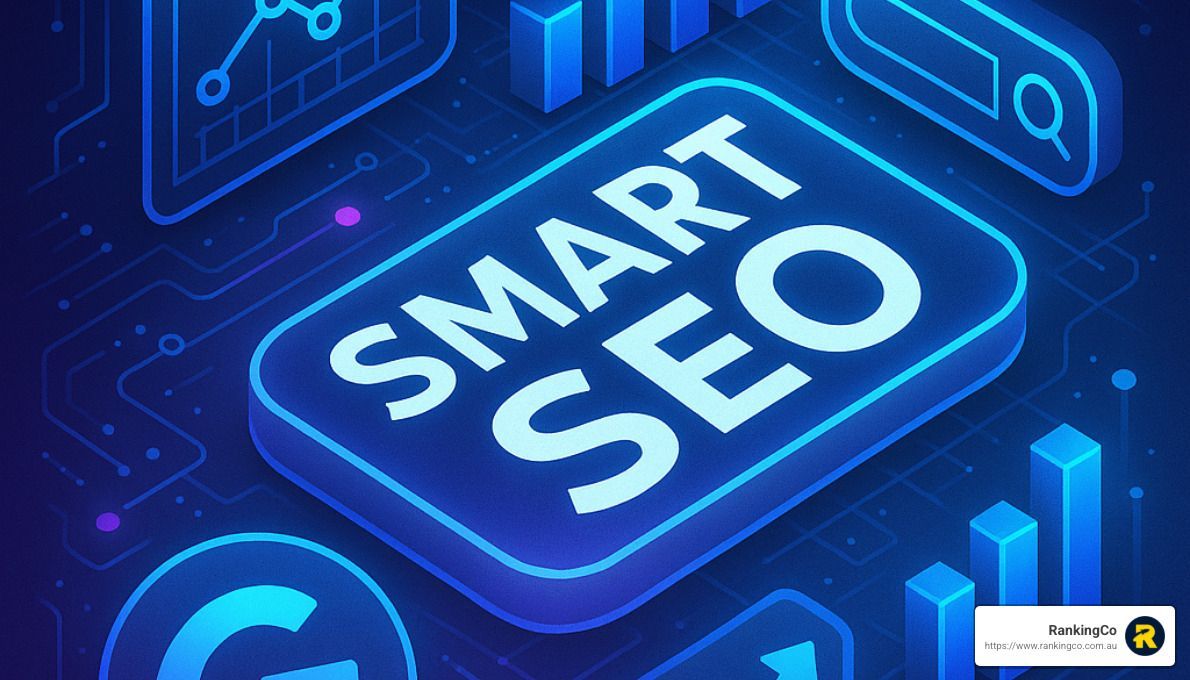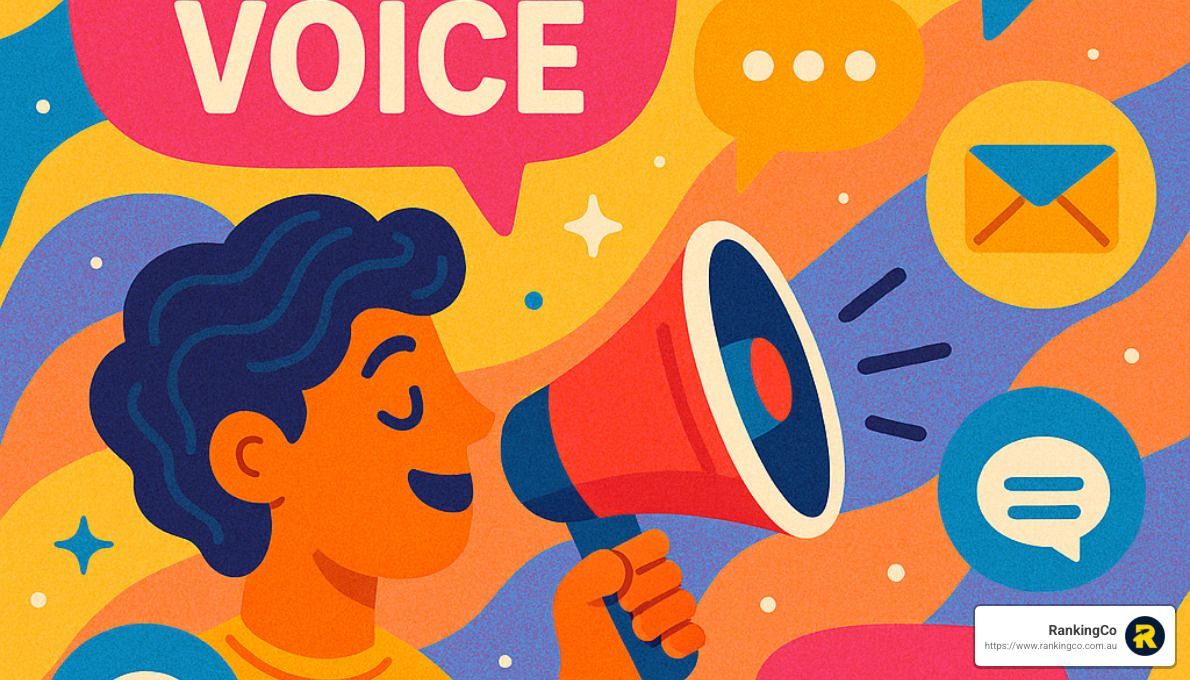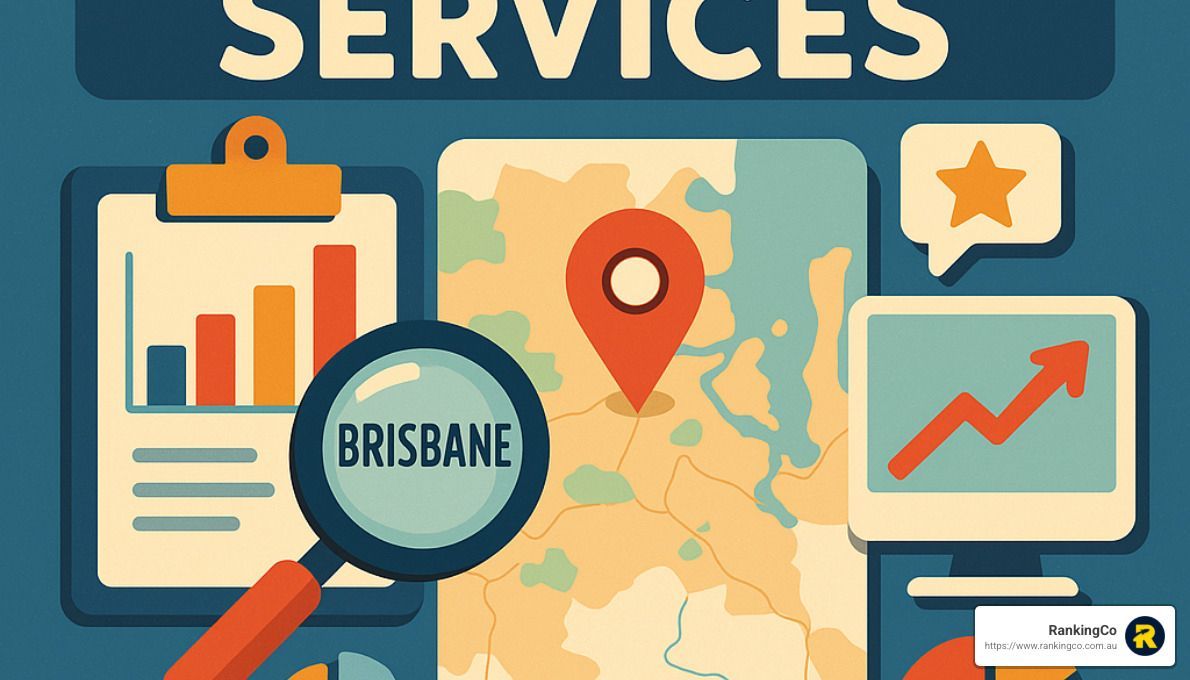Small Business, Big Impact: Social Media Marketing Guide
Why Social Media Marketing is Vital for Small Businesses
Social media marketing for small business involves using online platforms where people interact to improve brand visibility, engage customers, and drive sales. If you're a small business owner, here's how social media can play a crucial role in your growth:
- Increased Brand Awareness: Social media helps you reach a broad audience, making your brand more recognizable.
- Customer Engagement: You can directly interact with customers, building relationships that translate into loyalty.
- Cost-Effective Marketing: Social platforms offer budget-friendly advertising options compared to traditional methods.
Social media acts as a powerful tool for small businesses to compete with larger companies by offering targeted and personal customer experiences.
I'm Amber Porter, CEO and digital marketing expert at RankingCo. I've dedicated my career to helping small businesses thrive in the digital landscape with effective, ROI-driven strategies, including social media marketing for small business.

Benefits of Social Media Marketing for Small Businesses
Social media marketing offers several key benefits for small businesses, making it an essential part of any modern marketing strategy.
1. Brand Awareness
Social media platforms have an enormous reach. Facebook alone boasts over 2 billion users worldwide. This makes it an ideal place for increasing your brand's visibility. When you post on social media, your message can potentially reach thousands, if not millions, of people.
Example: A local café in Brisbane started sharing short-form videos of their latte art on Instagram. Within weeks, their posts went viral, attracting customers from all over the city. This is the power of social media in creating brand awareness.
2. Customer Engagement
Social media isn't just about broadcasting your message. It's also about engaging with your audience. Platforms like Instagram and X (formerly Twitter) allow you to have real-time conversations with your customers. This interaction builds trust and loyalty.
Pro Tip: Use polls and Q&A sessions on Instagram Stories to engage your audience. This not only boosts interaction but also provides valuable insights into customer preferences.
3. Cost-Effective Marketing
Traditional advertising methods can be expensive. In contrast, social media marketing offers a budget-friendly alternative. You can start with organic posts and gradually move to paid ads as your business grows.
Fact: According to a study, small businesses that use social media marketing see a 40% increase in cost savings compared to those using traditional marketing methods.
Social media marketing for small business allows for targeted advertising, ensuring you reach the right audience without wasting resources. By identifying your target demographics, you can tailor your ads to appear only to those most likely to be interested in your products or services.
In summary, social media marketing is a powerful tool for small businesses. It helps increase brand awareness, fosters customer engagement, and provides a cost-effective marketing solution. By leveraging these platforms, small businesses can compete effectively in the digital landscape and achieve significant growth.
Now, let's dive into how you can get started with social media marketing for your small business.
How to Get Started with Social Media Marketing for Small Business
Starting on the journey of social media marketing for small business can seem daunting, but with a clear roadmap, you can steer this landscape successfully. Let's break it down into three simple steps: goal setting, audience targeting, and platform selection.
Goal Setting
Before diving into social media, it's crucial to establish what you want to achieve. Your goals will guide your strategy and help you measure success.
- Specific Goals: Define clear, specific objectives. Do you want to increase brand awareness, drive more traffic to your website, or boost sales? Each goal will require a different approach.
- Measurable Outcomes: Use metrics like follower growth, engagement rates, and website traffic to track your progress. This data will show you what's working and where improvements are needed.
- Attainable Targets: Set realistic goals that you can achieve with your available resources. It's important to aim high but also be practical.
- Relevant Objectives: Ensure your goals align with your overall business objectives. Your social media efforts should support your broader business strategy.
- Timely Milestones: Establish a timeline for achieving your goals. Quarterly reviews can help you stay on track and make necessary adjustments.
Audience Targeting
Knowing your audience is key to successful social media marketing. Tailor your content to resonate with the people most likely to be interested in your products or services.
- Identify Demographics: Determine the age, gender, location, and interests of your target audience. This information will guide your content creation and advertising strategies.
- Engage with Your Audience: Use tools like polls, quizzes, and Q&A sessions to interact with your audience and gather insights into their preferences.
- Monitor Audience Behavior: Pay attention to what types of content your audience engages with most and adjust your strategy accordingly.
Platform Selection
Choosing the right social media platforms is crucial for reaching your target audience effectively. Not all platforms are created equal, and each has its strengths.
- Facebook: Ideal for building community and sharing updates. It's a great platform for B2C interactions.
- Instagram: Perfect for visual storytelling. Use it to showcase your products with high-quality images and videos.
- LinkedIn: Best for B2B marketing. It's a professional network that allows you to connect with industry leaders and potential business partners.
- TikTok: Great for reaching younger audiences with creative and engaging short videos.
- X (formerly Twitter): Useful for real-time updates and engaging in conversations with your audience.
Selecting the right platforms ensures that your content reaches the people who matter most to your business.
By setting clear goals, understanding your audience, and choosing the right platforms, you can lay a strong foundation for your social media marketing strategy. This approach will help you make a big impact, even as a small business.
Next, we'll explore the top social media platforms for small businesses, diving deeper into their unique features and benefits.
Top Social Media Platforms for Small Businesses
Choosing the right social media platforms is crucial for small businesses aiming to make a big impact. Each platform offers unique features and benefits that can help you reach your target audience effectively. Let's explore the top platforms:
Facebook remains a powerhouse in social media marketing. With a Facebook Business account, small businesses can access advertising tools and in-depth analytics. It's perfect for building a community and sharing a wide range of content, from company news to engaging videos.
- Key Feature: Advertising tools and analytics
- Audience: Diverse, but particularly strong for B2C interactions
- Tip: Use Facebook Live to engage with your audience in real-time and create a sense of community.
Instagram is a visual platform with around 2 billion active users as of 2024. It's ideal for small businesses that have visually appealing content to share. Instagram Stories and Instagram Live are excellent tools for promoting your offerings.
- Key Feature: Visual storytelling with high-quality images and videos
- Audience: Predominantly under 34, with a strong female Gen Z user base
- Stat: 90% of Instagram users follow a business account.
- Tip: Focus on creating eye-catching visuals and using hashtags to increase your reach.
LinkedIn is the go-to platform for professional networking. It's perfect for B2B marketing, allowing businesses to showcase their expertise and connect with industry leaders.
- Key Feature: Professional networking and industry-specific groups
- Audience: Professionals, mainly aged 25-34
- Tip: Participate in LinkedIn Groups to improve your brand's visibility and establish thought leadership.
TikTok
TikTok is a relatively new player but has rapidly gained popularity, especially among Gen Z. It's known for creative and engaging short videos, making it a fun platform for businesses with a younger target audience.
- Key Feature: Short, engaging video content
- Audience: Predominantly Gen Z, with a higher female user base
- Tip: Leverage trends and challenges to create viral content that resonates with younger audiences.
X (formerly Twitter)
X is best for sharing brief updates and engaging in real-time conversations. It's a great platform for businesses that want to share quick updates and interact with their audience.
- Key Feature: Real-time updates and engagement
- Audience: Predominantly aged 25-34, with more male users
- Tip: Use hashtags to increase the visibility of your tweets and join trending conversations to boost engagement.
Each of these platforms offers unique opportunities for small businesses to connect with their audience. By understanding their strengths and aligning them with your business goals, you can craft a social media strategy that delivers results.
Next, we'll dive into creating effective social media content, exploring strategies and tactics to boost engagement.
Creating Effective Social Media Content
Creating effective social media content is key to making social media marketing for small business work. Let's break it down into three main parts: content strategy, visual content, and engagement tactics.
Content Strategy
Your content strategy is your game plan. It’s about knowing what to post and when. Start by defining your goals. Are you looking to increase brand awareness, drive website traffic, or boost sales? Each goal requires different types of content.
- Originality is Key: According to the 2024 Content Benchmarks Report, original content is what makes a brand memorable. Create unique posts that showcase your brand's personality.
- Mix It Up: Don’t just stick to one type of post. Use a variety of content like blog links, product showcases, and customer testimonials.
- Plan Ahead: Use a content calendar to schedule posts. This ensures consistency and helps you keep track of what works best.
Visual Content
Visuals are crucial because they grab attention quickly. Think of images and videos as your first impression.
- Show, Don’t Tell: Our research shows that original content demonstrating your product or service in action is a major driver for consumer purchases. Use videos and images to highlight your products.
- Keep It High Quality: Invest in good visuals. Blurry photos or poorly edited videos can hurt your brand image.
- Leverage Stories and Reels: Platforms like Instagram and TikTok thrive on short, engaging videos. Use these features to share behind-the-scenes content or quick tips.
Engagement Tactics
Engagement is all about interacting with your audience. It’s not enough to just post content; you need to get people talking.
- Be Human: Inject personality into your posts and replies. Make people feel like they’re talking to a real person, not a robot. Personalised responses can build stronger connections.
- Encourage User-Generated Content: Encourage your customers to share their own photos and stories about your products. This not only builds trust but also provides you with free content.
- Ask Questions: Use polls or open-ended questions to start conversations. This can increase interaction and make your audience feel involved.
By focusing on these areas, you can create content that not only attracts attention but also fosters a community around your brand. Next, we’ll look into how to measure the success of your social media marketing efforts.
Measuring Success in Social Media Marketing
Once you've put your social media plan into action, it's time to see how well it's working. Measuring success in social media marketing for small business is crucial for understanding what's effective and what needs improvement. Let's explore the key elements: KPIs, analytics tools, and performance optimisation.
Key Performance Indicators (KPIs)
KPIs are the metrics that help you track progress toward your business goals. They provide a clear picture of how your social media efforts are paying off.
- Engagement Metrics: Look at likes, comments, shares, and clicks. These show how well your content resonates with your audience.
- Awareness Metrics: Track impressions and reach to see how many people are seeing your content.
- Conversion Metrics: Measure actions like website visits, sign-ups, or purchases that result from your social media campaigns.
Using KPIs will help you align your social media activities with your business objectives and prove the ROI of your efforts.
Analytics Tools
Analytics tools are your best friends when it comes to measuring success. They help you gather data and insights to make informed decisions.
- Built-in Platform Tools: Most social media platforms, like Facebook and Instagram, offer free analytics tools. These provide basic insights into your content performance.
- Advanced Tools: Consider using more comprehensive tools like Sprout Social or Hootsuite for deeper analysis. These platforms offer detailed reports and can track multiple social media accounts in one place.
- Google Analytics: Use this to track social media traffic to your website. It helps you understand which platforms drive the most visitors and conversions.
Performance Optimisation
Once you have data, use it to optimise your social media strategy. This is about making small tweaks to improve your results over time.
- A/B Testing: Experiment with different types of content, posting times, and formats to see what works best.
- Regular Audits: Conduct monthly audits to review your KPIs. Identify trends and adjust your strategy accordingly.
- Feedback Loop: Listen to your audience. Their comments and messages can provide valuable insights into what they like and what they don’t.
By focusing on KPIs, leveraging analytics tools, and continuously optimising your approach, you can ensure that your social media marketing for small business is both effective and efficient. Next, we’ll tackle some frequently asked questions about social media marketing.
Frequently Asked Questions about Social Media Marketing for Small Business
What is the 50 30 20 rule on social media?
The 50 30 20 rule is a simple guideline for budget allocation in social media marketing. It helps small businesses manage their advertising spend effectively:
- 50% of your budget should go towards promoting content that directly engages your audience, such as posts that encourage likes, shares, and comments. This builds brand visibility and strengthens customer relationships.
- 30% should be allocated to content that drives direct conversions, like sales promotions or special offers. This part of the budget focuses on customer acquisition and boosting sales.
- 20% is for experimenting with new ideas or platforms. This could involve testing new ad formats, exploring emerging platforms, or trying out innovative content strategies. This keeps your approach fresh and adaptable.
By following this rule, businesses can maintain a balanced approach to social media marketing, ensuring both engagement and growth.
How can social media help a business grow?
Social media is a powerful tool for business growth in several ways:
- Brand Visibility: With over 2 billion users on platforms like Facebook, your business can reach a vast audience. Consistent posting increases your brand's visibility and keeps it top-of-mind for potential customers.
- Customer Acquisition: Platforms like Instagram and LinkedIn are excellent for attracting new customers. By sharing valuable content and engaging with your audience, you can convert followers into loyal customers.
- Cost-Effective Marketing: Social media offers a cost-effective way to reach a large audience. Unlike traditional advertising, it allows for precise targeting, ensuring your message reaches the right people.
What are creative ways to promote your business on social media?
Being creative on social media can set your business apart. Here are some effective strategies:
- User-Generated Content (UGC): Encourage your customers to share their experiences with your products. This not only boosts engagement but also builds trust, as people are more likely to believe recommendations from other users.
- Influencer Partnerships: Collaborate with influencers who align with your brand values. Their endorsement can introduce your business to a broader audience and add credibility.
- Interactive Content: Use polls, quizzes, and live videos to engage your audience. Interactive content encourages participation and keeps your audience coming back for more.
These approaches can improve your social media marketing efforts, making your small business stand out in a crowded digital landscape.
Get Expert Help and Watch Your Business Grow
In the changing world of digital marketing, social media marketing for small business has proven to be a game-changer. It offers a unique blend of brand visibility, customer engagement, and cost-effective strategies. At RankingCo, we understand the power of social media and how it can transform a small business into a local powerhouse.
Our approach at RankingCo is simple yet effective. We use advanced AI technologies to stay ahead of market trends and create campaigns that resonate with your target audience. This tech-savvy approach ensures that our strategies are not only current but also highly effective, setting new benchmarks in performance and results.
Local SEO is another area where we excel. By focusing on local search engine optimisation, we help small businesses rank better in search engines, making it easier for potential customers to find them. This is crucial for businesses looking to establish a strong local presence and attract nearby customers.
If you're ready to make a big impact with your small business, consider partnering with us. Our digital marketing strategies are custom to meet your unique needs, ensuring that you not only reach your audience but also engage with them effectively.
Explore more about our services and how we can help your business grow by visiting our Social Media Management page. Let's take your social media marketing to the next level together!

